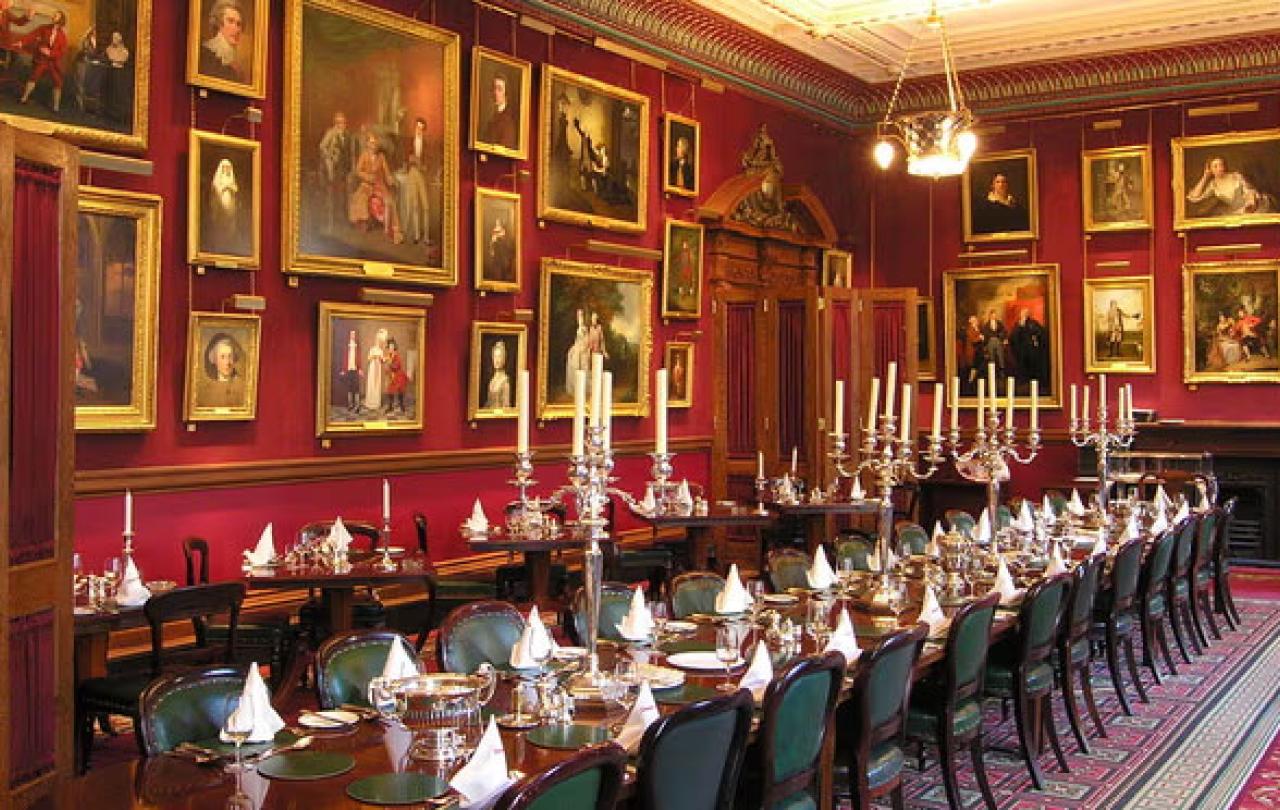
I was this week one of several hundred members of the Garrick Club, with many more attending online, crammed into a central London conference room to vote on whether women could be admitted as members for the first time since our founding in 1831.
We Garrick members rather fancy ourselves as a secret society – and it was a rich irony that our vote was held in the same block as the Freemasons’ Hall in Great Queen Street.
Actually, I rather like the tradition that what’s said and done in the Garrick stays in the Garrick. So this isn’t about our club’s internal wrangling and politics, beyond the now widespread news that women were voted as eligible for membership by a majority of 60 per cent.
Rather than go further into that, I want to compare it with another well-fought fight for women’s inclusion: The admission of the female gender to the priesthood of the Church of England, more or less exactly 30 years ago in 1994.
Much of what was going on in the Church then was being rehearsed again in London WC2 this week. You might call it long overdue dismantlements of patriarchal institutions, even if neither the Church nor our club would self-identify as such. No case could continue to be sustained for all-male preferment in our Church or in our club.
To their great credit, the vote was won for reform by those who decided to work together, without rancour or resentment, in preference to further division and bitterness.
There are two observations I would make of the Church precedent that may be of some comfort to my fellow club members, who may feel that nothing will ever be quite the same again. The first of these is quite a quick point. After a couple of weeks of women’s priesthood, almost everyone in the Church wondered what all the fuss had been about. Ordained women became a natural part of the priestly fabric of the Church really that quickly.
Yes, provision had to be made for those who in conscience couldn’t accept women’s ordained ministry, so the process was not without its pain. But three decades on, women priests (and subsequently and inevitably bishops) are so much part of the weave of that fabric that most church congregations feel they’ve always been there.
The second point I would make is that I know anecdotally of very many traditionalists opposed to women’s ordination who, at the General Synod, either voted for women or abstained when the result became inevitable. To have fought a last-ditch, hopeless defence could only have lastingly damaged the Church’s reputation and ministry.
To their great credit, the vote was won for reform by those who decided to work together, without rancour or resentment, in preference to further division and bitterness. My feeling is that a tranche of Garrickian votes were cast for similar reasons.
These were women at the top of their game. It’s just taken a couple of millennia for our churches and clubs to catch up.
The comparison of a gentleman’s club and gentleman’s church is an imperfect one. Members of a church could be male or female; only the clergy were strictly male. There were profound theological and ecclesiological arguments (though I don’t share them) made against the prospect of women priests by Anglo-Catholics, which aren’t available to fans of men-only clubs.
But the similarities between the institutions are founded on the principles of patriarchy nevertheless. The idea that men, in private circumstances, can behave and associate in the pretence that they are still in charge of everything, as they were in the nineteenth century, both at church and in clubland.
This doesn’t matter much when it comes to the likes of all-boy or all-girl sports teams – though it’s a delight to see Woodlanders Football Club, Lioness-cubs to a girl, beat the boys to win their cup.
It begins to matter very much indeed when the senior figures of professions and public institutions seek to associate only with their male colleagues. That’s as true of a boss who takes only the boys in the office to a rugby match at Twickenham as it is of gentlemen’s clubs. It may be patriarchy-lite, but it is rooted in the same hegemony that gave the Church its patriarchs.
It’s an irony as rich as the location of this week’s Garrick vote that the gospel is far from patriarchal in its narratives, even though the language of Father and Son so ostensibly is. The Nazarene, scandalously for his day, freely associates with women. The Jesus movement is radical in gender equality in a manner that its Church has failed down the centuries to emulate.
Jesus gives full messianic attention to a despised and shamed Samaritan woman; he saves an adulterous woman (code for prostitute) from stoning; he stops to address a bleeding woman who just wants to touch him; as the risen Christ, he gives a woman, Mary of Magdala, the greatest apostolic mission in history to tell his dispersed disciples what she has witnessed.
Little wonder women appear so prominently in the Acts of the Apostles. These were women at the top of their game. It’s just taken a couple of millennia for our churches and clubs to catch up.




